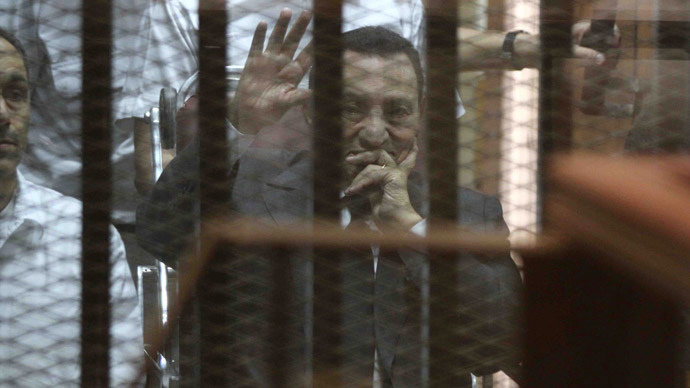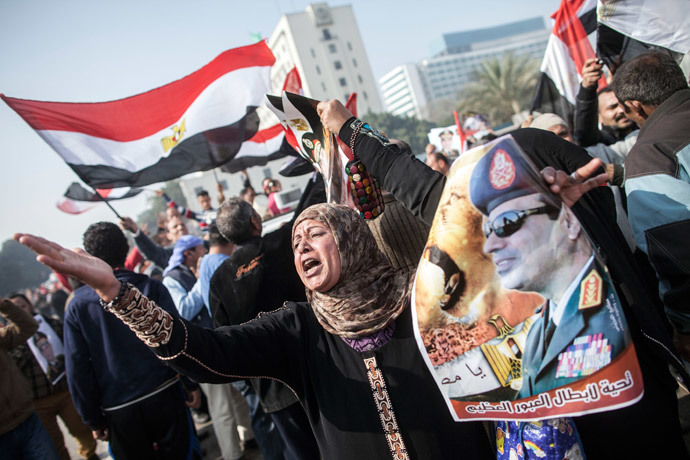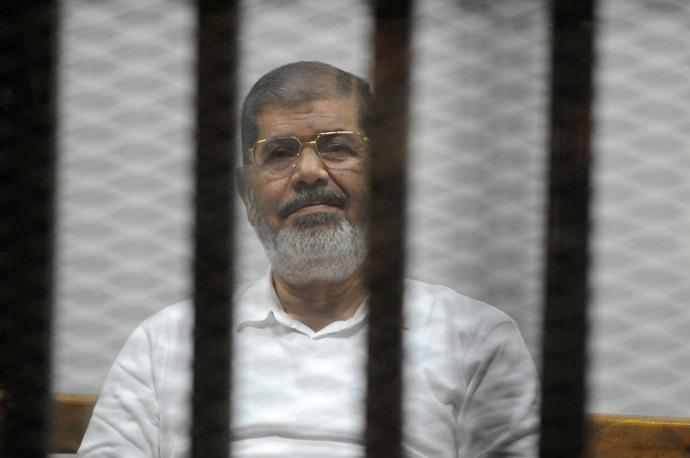Egypt back to the future

The extent, not to mention speed, of the rolling back of the Arab Spring was emphatically illustrated by the recent decision of an Egyptian court to drop criminal proceedings against Hosni Mubarak.
To loud cheers inside the courtroom and scenes of euphoria among a small group of his supporters outside, the 86 year old former dictator received the judge’s decision while lying on the same gurney he’s been stuck to for the past three years, most of which he has spent incarcerated in a military hospital on the outskirts of Cairo, serving a separate three-year sentence for embezzlement.
Along with seven officials who were acquitted of the same charges, Mubarak’s acquittal over the deaths of anti-government protesters in 2011, along with the corruption charges he was facing, equates to a window being slammed shut on the aspirations and hopes of the millions who participated in the historic events of that momentous year.
In words attributed to Lenin, “There are decades where nothing happens and weeks where decades happen.” Their abiding truth is evident in the three years separating the most progressive period in the recent history of Egypt and the wider region in decades, followed by the most regressive. The toppling of Mubarak by a relatively peaceful revolutionary process in 2011 was meant to be the harbinger of a new chapter after decades of sclerotic dictatorship. Every demographic, religious minority, all ages and class came out in defiance of fear and a security apparatus renowned for its brutality, packing Tahrir Square in downtown Cairo. For those precious few weeks it became the focal point of the entire world, synonymous with people power, transformation, and hope.

Today Tahrir Square lies as empty as Egypt, the beating heart of the Arab world, is once again reacquainted with authoritarianism.
The one small comfort that Egypt can draw from recent events is that unlike Libya and Syria, it did not descend into an abyss of lawlessness, barbarism, and unending violence. But the absence of conflict should not be confused with peace. For peace to obtain justice must be served; and here it cannot be denied that the first democratically elected government in Egypt’s history, led by Mohammed Morsi, was toppled by undemocratic means.
The only conclusion to be drawn from Egypt’s experience is that a mass movement demanding change is pregnant with the danger of running out of steam if it fails to emerge from a stage of contested ideas and remains crippled with uncertainty over what that change should look like. In other words, if you don’t have a strategy, you’re part of someone else’s strategy.
The very attributes responsible for the success of the Egyptian chapter of the Arab Spring – the breadth and heterogeneity already mentioned – became its weakness at the very moment of its success. The emergence of the Muslim Brotherhood and Mohammed Morsi as the beneficiaries of the nation’s first democratic elections in 2012 was a reflection of this weakness. It described the journey of a society travelling in one jump from a corrupt and authoritarian secular dictatorship to a democratically elected government, led by those whose worldview was shaped and guided by a religious text rooted in the seventh century.

Underpinning the crisis in Egypt was an economy that had seen the tourism and foreign investment it’s so heavily dependent on dry up, due to a recession that was causing havoc throughout the Global South, combined with the turbulence wrought by events at home. With negotiations with the IMF over an emergency loan at deadlock over its insistence that Morsi cut government subsidies to the poor, the very demographic from which he and the Brotherhood drew the bulk of their support. The choice among the country’s middle class and also a critical mass of its working poor became a simple one, between the status quo under Morsi or the army, whose status within the country was and remains historically sacrosanct as protector of the nation.
It was now that Abdel Fattah el-Sisi, head of Egypt’s armed forces, arrived on the stage of the nation’s history, propelled to prominence by a second round of mass protest in the summer of 2013; this time against the Morsi government and the Muslim Brotherhood. The process that saw Sisi throw Morsi in prison and thereafter assume the presidency - a process rubber-stamped at the ballot box – carried the impetus and weight of popular support. The people had had a glimpse of the future and decided the past was better.
The US, meanwhile, continued to give Egypt its annual pocket money of $1.5 billion in aid without interruption. Democracy comes at a price but never at the expense of self-interest where Washington is concerned. With the wider region in flames as the Arab Spring gave way to winter, the priority of the West lay in ensuring it landed safely on the rocks of Western hegemony. In so doing it has fanned the flames of conflict, carnage, and chaos, making Egypt seem positively utopian by comparison.
Still, at least the trains are running on time.
The statements, views and opinions expressed in this column are solely those of the author and do not necessarily represent those of RT.
The statements, views and opinions expressed in this column are solely those of the author and do not necessarily represent those of RT.













